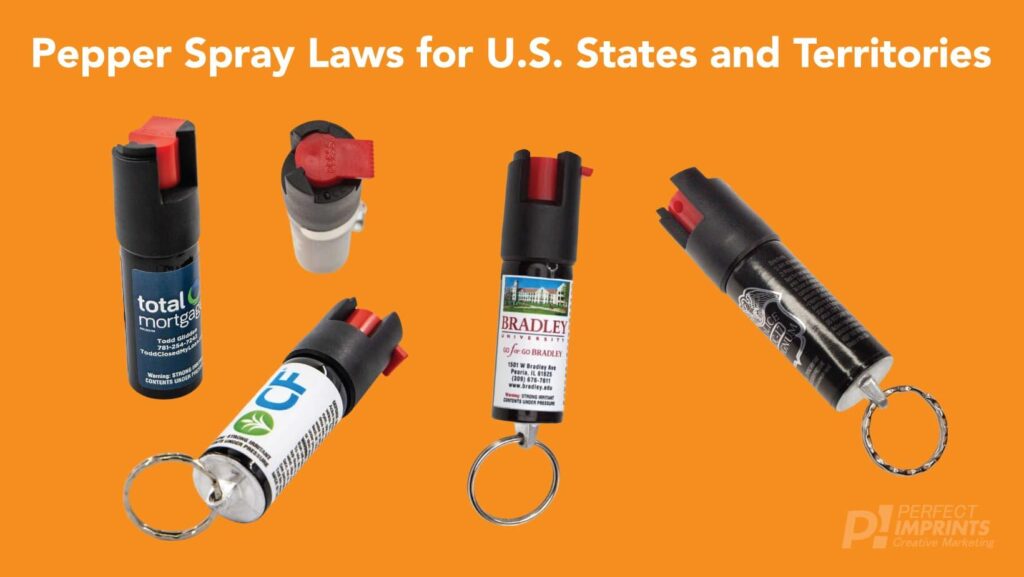Table of Contents
- Federal Employee Guidelines for Carrying and Using Pepper Spray
- Understanding Legal Restrictions and Agency Policies on Pepper Spray
- Best Practices for Safe and Responsible Pepper Spray Use in Federal Workplaces
- Recommendations for Training and Compliance to Avoid Disciplinary Action
- The Conclusion
Federal Employee Guidelines for Carrying and Using Pepper Spray
Federal employees must strictly adhere to specific protocols regarding the possession and deployment of pepper spray while on duty. This non-lethal defensive tool is generally permitted only when explicitly authorized by the employing agency, and its use must remain within the boundaries of self-defense or protecting others from immediate harm. Unauthorized carrying or improper use can result in disciplinary actions, including termination or legal consequences. Agencies typically provide training that covers proper handling, situational awareness, and the legal ramifications tied to the use of pepper spray.
Key guidelines for pepper spray usage among federal workers include:
- Confirming permissible carrying status with the agency’s security or human resources department before possession.
- Maintaining pepper spray in original packaging or a clearly marked container to avoid confusion or accidental discharge.
- Only deploying pepper spray in response to an imminent threat, avoiding excessive force or use as a deterrent for minor disputes.
- Reporting any deployment incidents promptly through official channels to ensure compliance and proper documentation.
By following these guidelines, federal employees contribute to a safer workplace environment while respecting both legal and ethical standards surrounding personal safety measures.
Understanding Legal Restrictions and Agency Policies on Pepper Spray
When it comes to pepper spray usage by federal employees, the legal framework is both stringent and specific, shaped by federal laws and tailored agency policies. It’s crucial to recognize that while pepper spray is classified as a non-lethal defense mechanism, the possession, transportation, and deployment of this chemical agent are bound by strict rules. Federal employees must typically adhere to internal agency guidelines which often include mandatory training, limitations on where and how pepper spray can be carried, and explicit instructions about its use during interactions with the public or on federal property.
Agencies often emphasize the importance of responsible use to prevent legal repercussions and maintain professional conduct. Common restrictions include:
- Prohibition against carrying pepper spray in certain federal buildings or during specific operations.
- Use-of-force protocols that require pepper spray to be a last-resort option after verbal warnings or other de-escalation techniques.
- Documentation mandates requiring detailed incident reports whenever pepper spray is used.
Understanding and complying with these policies not only safeguards an employee’s legal standing but also reinforces the integrity and trust expected from federal service roles.
Best Practices for Safe and Responsible Pepper Spray Use in Federal Workplaces
When carrying pepper spray in federal workplaces, discretion and awareness are paramount. Employees must ensure they are familiar with specific agency policies regarding possession and use to avoid inadvertent violations. It is crucial to store the spray securely, away from unauthorized personnel and in easily accessible locations in case of emergency. Training is recommended before carrying pepper spray, enabling users to understand its potency, appropriate deployment distance, and the conditions under which its use is justified. Adopting these precautions not only helps with compliance but also minimizes potential workplace disruptions.
Proper usage guidelines include:
- Always aim for the attacker’s face, targeting the eyes and nose for maximum effectiveness.
- Use brief bursts rather than continuous spraying to conserve the contents and reduce risk to bystanders.
- Immediately vacate the area after deploying pepper spray to avoid self-exposure and allow for emergency response.
- Report all incidents where the spray is used as soon as possible, adhering to workplace incident protocols.
Recommendations for Training and Compliance to Avoid Disciplinary Action
To ensure adherence to federal guidelines regarding pepper spray use, employees must engage in comprehensive training programs that cover both the legal statutes and ethical considerations. Training should emphasize the appropriate circumstances for deployment, proper handling techniques, and the importance of restraint to prevent misuse. Regular refresher courses can help reinforce knowledge and keep employees up to date with evolving policies and best practices. Encouraging active participation in scenario-based drills further enhances decision-making skills under pressure.
Compliance is reinforced not only through education but also through consistent oversight and clear communication of regulations. Supervisors should foster an environment where employees feel comfortable seeking clarification and reporting incidents without fear of reprisal. Establishing a clear chain of accountability ensures that any breaches of protocol are swiftly addressed, minimizing risk of disciplinary action. Additionally, documented adherence to training and compliance protocols can serve as essential evidence demonstrating commitment to federal standards.
The Conclusion
In conclusion, while pepper spray remains a valuable tool for personal protection, federal employees must navigate specific rules and restrictions regarding its possession and use in the workplace. Understanding these regulations not only ensures compliance with agency policies but also promotes a safe environment for all. If you’re a federal employee considering pepper spray for security reasons, take the time to review your agency’s guidelines carefully and stay informed about any updates. Responsible use and adherence to the rules ultimately protect you and your colleagues, fostering both safety and professionalism on the job.Check Our Other Blogs
- StunGun – Your Trusted Source for Stun Guns, Laws, and Self-Defense Tips
- PepperSprayLaws – Your Trusted Resource for Pepper Spray Information
- StunGunLaws – Your Trusted Guide to Stun Gun Legality and Safety




